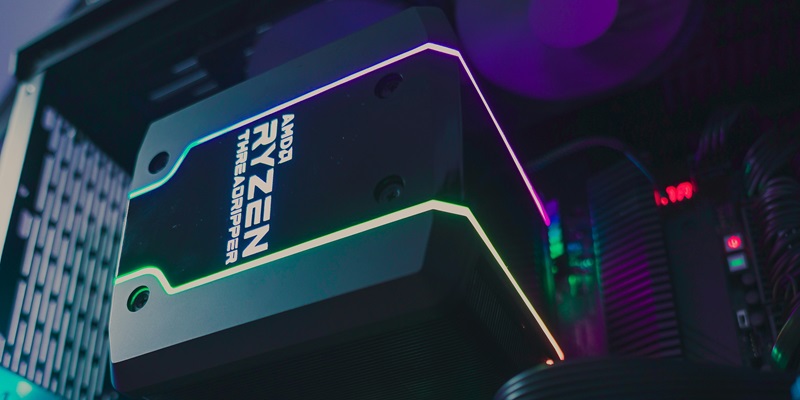The much-anticipated debut of AMD’s flagship CPUs, the Ryzen 9 9950X, and Ryzen 9 9900X, on Geekbench has created quite a buzz in the tech community. These next-generation processors showcase AMD’s latest Zen 5 architecture, promising significant performance boosts. Specifically, the Geekbench 6.3 scores reveal the 9950X achieving a single-core score of 3,359 and a multi-core score of 20,550. This single-core performance represents a notable 12% improvement over its predecessor, the Ryzen 9 7950X, which averaged a score of 2,975. Despite expectations for both core counts to rise, the multi-core performance remains nearly the same as the 7950X, with only a slight increase from its 19,813 average score. This duality in performance gains highlights AMD’s focus on refining single-core efficiency while maintaining a steady trajectory in multi-core capabilities.
Similarly, the Ryzen 9 9900X has shown comparable benchmark results, further cementing the progress made by the Zen 5 architecture. In identical testing conditions featuring 32 GB of DDR5 6,000 RAM, the 9900X clocked in single and multi-core scores of 3,356 and 20,100, respectively. The consistent uplift in single-core performance aligns closely with AMD’s advertised 15% IPC (instructions per cycle) improvement. In contrast, the multi-core performance for both models remains almost identical, which might hint at potential optimizations available through future BIOS updates. Judging by these early benchmarks, the increased focus on single-thread performance might prove crucial for numerous applications, especially gaming and specific productivity tasks, positioning these CPUs favorably in a competitive market.
Architectural Shifts and Performance Insights
The notable 12% enhancement in single-core performance directly aligns with the industry’s broader movement towards enhancing single-thread capabilities. Geekbench’s dependency on memory frequency adds another layer to this comparison. Further advancements could be realized with higher-spec RAM, potentially narrowing the performance gap even more. These findings underscore the substantial progress made by AMD in delivering more robust single-core performance, which is increasingly becoming a decisive factor in real-world applications beyond multi-thread workloads. The theme of noticeable single-core enhancement persists throughout the results, reinforcing AMD’s trajectory towards this critical pivot.
Meanwhile, the multi-core performance of both the Ryzen 9 9950X and the 9900X demonstrates a more conservative improvement. The multi-core score for the 9950X stands at 20,550, marginally improved from the 19,813 scores of the 7950X. The Ryzen 9 9900X follows suit, with a multi-core score of 20,100. Such moderate gains suggest that while multi-core capability remains essential, it may not be the focal point of this generational leap. These insights could largely be attributed to the balancing act between power efficiency and overall thermal design. The strategic emphasis on single-core performance could invariably benefit applications that predominantly rely on high-speed core activity, marking a definitive shift in AMD’s architectural priorities.
Broader Implications for AMD’s Market Position
AMD’s flagship CPUs, the Ryzen 9 9950X and Ryzen 9 9900X, have set the tech community abuzz with their Geekbench debut. These next-gen processors boast AMD’s cutting-edge Zen 5 architecture, promising notable performance enhancements. In Geekbench 6.3, the 9950X achieved a single-core score of 3,359 and a multi-core score of 20,550, marking a 12% single-core improvement over the Ryzen 9 7950X, which scored an average of 2,975. However, the multi-core performance saw only a minor increase, rising from the 7950X’s 19,813 to 20,550, highlighting AMD’s emphasis on single-core efficiency while steadying multi-core capabilities.
The Ryzen 9 9900X shows similar results, underscoring the Zen 5 architecture’s advancements. Tested with 32 GB of DDR5 6,000 RAM, it delivered single and multi-core scores of 3,356 and 20,100, respectively. The 15% IPC (instructions per cycle) improvement in single-core performance supports AMD’s claims. This dual approach hints at potential optimizations through forthcoming BIOS updates. The increased single-thread performance could be pivotal for gaming and certain productivity tasks, positioning these CPUs competitively in the market.

